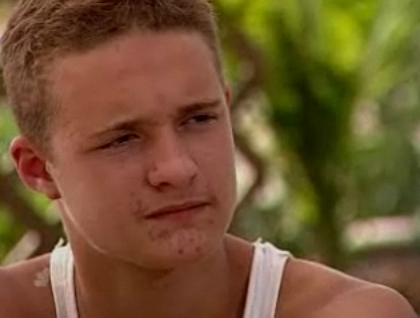 Johnathan Adams On April 26, just days before her ninth birthday, Amy Yates rode off on her bike in the Twin Oaks Mobile Home Park in Carrollton, Georgia. When she didn’t come home, a search turned up her bike between two abandoned trailers in the park and her body in an empty lake bed about 100 yards from where she lived.
She was fully clothed and had been strangled.
The following day, 12-year-old Johnathan Adams, a resident of the trailer park, was arrested for the girl’s murder. Police said that during a four-hour interrogation without his parents or a lawyer he admitted that he killed the girl.
Police said the boy told him that they were playing and that Amy ran into his outstretched arm, striking herself in the neck.
Prosecuted as a juvenile, Adams entered an Alford plea on July 14, 2005, stipulating that the prosecution had evidence sufficient to obtain a conviction, while at the same time not admitting guilt.
On August 11, 2005, Adams was ordered to serve no less than 12 months in a residential psychiatric treatment facility. He had already spent a year in custody and the maximum for a juvenile was two years.
Nearly two years after the murder, in February 2006, 18-year-old Christopher Gossett, a mentally challenged youth, came forward and confessed to killing the girl, saying he wanted to make the truth be known as part of a spiritual transformation.
At first authorities were dubious, but later said that Gossett revealed details that only the killer would have known—specifically that the girl’s pants had been undone, though there was no evidence of any sexual activity.
On April 4, 2006, Carroll County Juvenile Court Judge Daniel Camp vacated Adams’ conviction and on April 13, 2006, Adams was released.
On November 23, 2006, a grand jury indicted Gossett on a charge of involuntary manslaughter for the death of Amy Yates. The state said it would try him as an adult.
The case languished for nearly four years as Gossett, whose lawyers said he had the mental capacity of a nine-year-old and suffers from schizophrenia, recanted his confession.
Ultimately, on February 26, 2010, the state dismissed the charges against Gossett and he was released. Authorities said that in fact Gossett’s account did not match the physical evidence in the case.
– Maurice Possley |